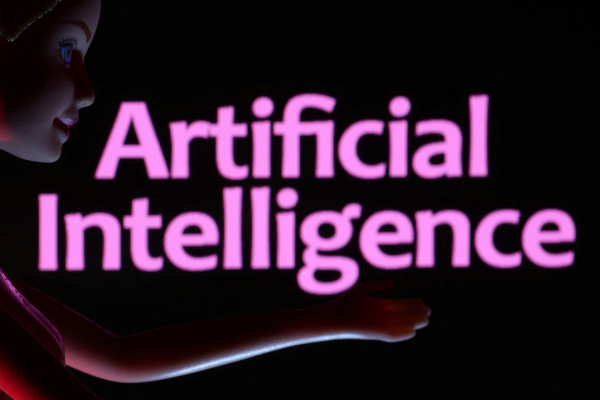Ensuring that technology serves humanity

Kay Firth-Butterfield at Good Tech Advisory explores the transformative power of AI and the ethical challenges it presents
Generative AI is increasingly making headlines worldwide. Can you explain what it is and how it works?
Kay: It’s very exciting because it’s the next iteration of artificial intelligence. Generative AI allows you to ask questions of the world’s data simply by typing them in. If we think back to science fiction, that’s what we’ve always wanted—a computer we can ask a question, and with all its knowledge, it generates an answer.
How does it do this? Essentially, it predicts what word should come next in a response. It does this by having access to enormous amounts of data—we call them large language models. The machine reads or, more accurately, accesses all the data available on the open web. In some cases, and this is a highly contentious issue in courts, it also accesses intellectual property and copyrighted material. I expect legal battles around this to continue for some time.
Once it has ingested all this data, it predicts the next word that naturally follows another, allowing it to construct highly complex answers. Anyone who has experimented with it will know it can produce remarkably eloquent responses simply by predicting word sequences.
However, sometimes it gets things completely wrong. In the AI community, we call this ‘hallucinating’—essentially, the AI is just making things up. This is a major challenge because we need to reach a point where we can trust its outputs. As the AI repeats misinformation, it reinforces and amplifies those inaccuracies, which is a significant concern.
What are the key advantages of generative AI, and how is it transforming access to artificial intelligence for businesses and individuals?
Kay: AI is now accessible to everyone, making it an incredibly democratising tool. Small and medium-sized enterprises that previously couldn’t afford AI solutions can now integrate them into their businesses.
When discussing AI, we must acknowledge that the majority of global data is created in the United States, followed by Europe and China. This presents several challenges regarding the data these large language models use. They are not actually utilising the world’s data; rather, they rely on a limited subset.
As a result, we are beginning to discuss the concept of ‘digital colonisation’—where AI systems are projecting insights based on data primarily from America and Europe while expecting the rest of the world to adopt this information.
Different cultures require different answers, which creates both significant opportunities and major challenges as we move forward with generative AI.
AI adoption is growing across industries, but successful implementation remains a challenge. What should businesses consider when integrating AI into their operations to ensure responsible and effective use?
Kay: That’s a huge question because there are so many ways AI can be used in a business. But I’d say to use it successfully, you need to be very aware of the responsible or trustworthy aspects of artificial intelligence.
You shouldn’t deploy AI—or, if you’re creating it yourself, design and develop it—without keeping ethics in mind. We now refer to it as responsible or trustworthy AI, as these factors directly impact successful deployment.
There is the potential for significant harm to businesses, not just in terms of brand reputation or customer loss but also financial penalties. More regulators are beginning to take legal action against companies that use AI irresponsibly or without safeguards. No company wants to be seen as untrustworthy in its use of AI—it’s a reputational risk.
Where should AI be deployed? Common areas include human resources, particularly for talent scouting. However, using AI in HR poses risks, as it can reflect and amplify human biases. We’ve already seen lawsuits in the US where companies purchased AI-powered HR tools that were later found to be discriminatory. Businesses need to carefully evaluate AI’s benefits while ensuring robust ethical oversight.
AI is also being utilised across factory floors, in pharmaceutical research, and in generative AI tools. However, businesses must understand that if they use AI models like ChatGPT, any data inputted could be accessible externally. For example, we saw a confidential Samsung memo get leaked globally because an employee used ChatGPT to transcribe it.
If you’re using generative AI in business, make sure you understand what AI actually is—it’s not truly intelligent; it just predicts the next word. Employees should experiment with it, but only after legal teams have approved its use and executives fully understand its implications.
The Metaverse has been a topic of both excitement and scepticism. What role do you see it playing in the future of business, and how do you anticipate its development over the next few years?
Kay: It’s interesting because we’ve moved through an initial wave of Metaverse enthusiasm, where businesses rushed to engage, to what I’d describe as a Metaverse ‘autumn’—a period of reassessment. One of the biggest challenges is the complexity of creating content for the Metaverse.
The strongest business applications for the Metaverse are currently in industrial settings. However, the grand vision—where we all seamlessly enter the Metaverse, shop, purchase homes, and interact in a truly immersive 3D space—remains a challenge due to the significant computing power and dedicated resources required.
In five years, I believe we’ll begin to see the Metaverse delivering real value for businesses. Customers will experience exceptional shopping environments, where instead of simply browsing a website, they can enter a virtual store, ‘feel’ fabrics—albeit not physically—and make more informed purchasing decisions.
We may also see remote working within the Metaverse, allowing for more interactive and immersive collaboration with colleagues. A recent study found that remote work makes it harder for younger employees to receive proper supervision. The Metaverse could provide a solution, enabling real-time mentorship and interaction. However, there must be balance—many people likely do not want to spend all their time in an immersive environment.
Looking ahead, what major global technology trends do you foresee shaping industries over the next decade, and how should businesses prepare for these changes?
Kay: When we discuss legal systems, we are also talking about other professional sectors, such as medicine, accountancy, insurance, and middle management.
With generative AI, many tasks traditionally assigned to junior professionals, such as note-taking and transcribing recordings, will become automated. Law firms, for instance, may no longer need junior lawyers for these tasks.
AI can also conduct research, provided it has access to the right databases. However, discussions around copyright infringement and intellectual property concerns are ongoing. AI that only accesses open internet data may not be useful for certain legal or financial research tasks, as much proprietary information is hidden behind paywalls.
While AI can increase efficiency, it also poses challenges. How do professionals gain the experience needed to become senior leaders if AI automates many junior-level roles? We must ensure AI is used to augment human expertise, not replace essential training.
We’ve already seen issues arise in legal sentencing, where judges have blindly followed AI-generated recommendations instead of applying their own judgement. AI should be treated like autopilot in aviation—supportive but requiring human oversight. These are major changes that will affect businesses and professionals globally in the years to come.
Kay Firth-Butterfield is the Chief Executive Officer of Good Tech Advisory and a renowned AI ethics speaker . She was interviewed by Louisa Mason-Hayes.
Main image courtesy of iStockPhoto.com and Supatman

Business Reporter Team
Most Viewed
Winston House, 3rd Floor, Units 306-309, 2-4 Dollis Park, London, N3 1HF
23-29 Hendon Lane, London, N3 1RT
020 8349 4363
© 2025, Lyonsdown Limited. Business Reporter® is a registered trademark of Lyonsdown Ltd. VAT registration number: 830519543





